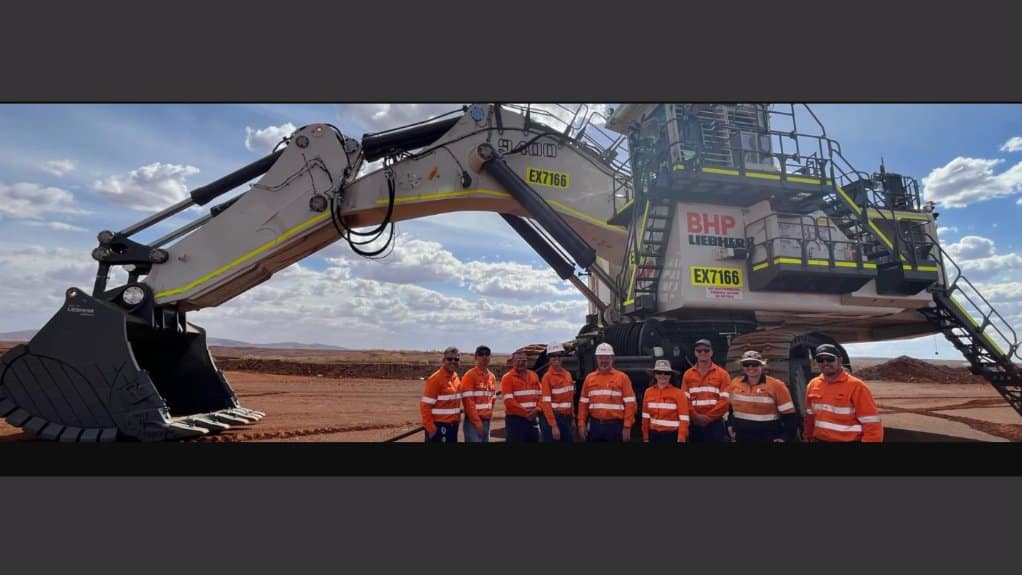Diversified major BHP has reported a milestone in its decarbonisation strategy with the introduction of its first electric excavator at the Yandi iron-ore mine in Pilbara, Western Australia.
The R9400 E Liebherr electric excavator, which replaces traditional diesel engines with an electric motor powered by a trailing cable, is now operational at the site.
The new excavator features Liebherr’s autonomous cable reeler, enhancing mobility on site and aiming to increase both productivity and operator safety. This development is part of BHP’s broader initiative to cut operational greenhouse gas (GHG) emissions, targeting a reduction of at least 30% by 2030 compared to 2020 levels, with an ultimate goal of achieving net-zero operational GHG emissions by 2050.
“Electrification of our fleet is our preferred solution to displace GHG emissions from using diesel; from trucks to trains to excavators we’re working hard to electrify our equipment,” sais Western Australia Iron Ore (WAIO) asset president Tim Day.
He highlighted ongoing efforts to electrify equipment across various operations as vital to meeting the company’s decarbonisation targets.
Brian Boitano, executive general manager of sales and marketing at Liebherr-Australia, praised the collaboration with BHP, noting that the R9400 E embodies Liebherr’s commitment to delivering innovative, zero-emission solutions to the mining industry.
BHP’s strategy includes a comprehensive approach to decarbonising mining equipment by transitioning from diesel to renewable electricity or other low to zero GHG emissions power sources. Given that the WAIO is not connected to an existing power grid, BHP is exploring methods to supply the necessary volumes of renewable or low-emissions power.



